Great English victory at Agincourt immortalised by William Shakespeare
“Once more unto the breach, dear friends” were the words Shakespeare put in the mouth of a king at one of Britain’s most historic military victories
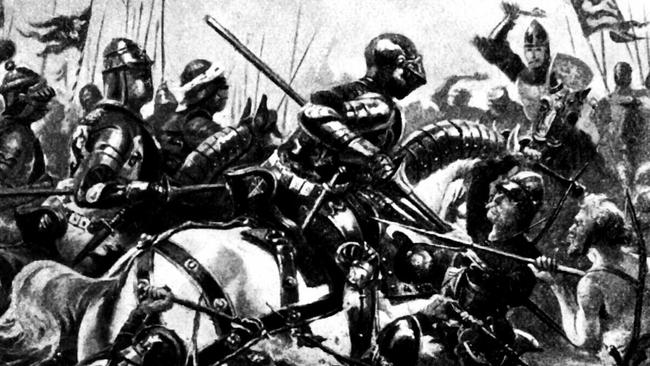
Today in History
Don't miss out on the headlines from Today in History. Followed categories will be added to My News.
It is the battle that inspired Shakespeare to write some of his most memorable lines: “Once more unto the breach, dear friends” and “We few, we happy few, we band of brothers”.
The Battle of Agincourt is one of the most famous victories in British military history, the day King Henry V led his “happy few” to triumph over a numerically superior French army.
The battle, which took place 600 years ago tomorrow, was just one incident during the Hundred Years War between England and France but reached epic status in British military history, partly thanks to Shakespeare’s Henry V which has also been a favourite of Hollywood giants such as Laurence Olivier and Kenneth Branagh.
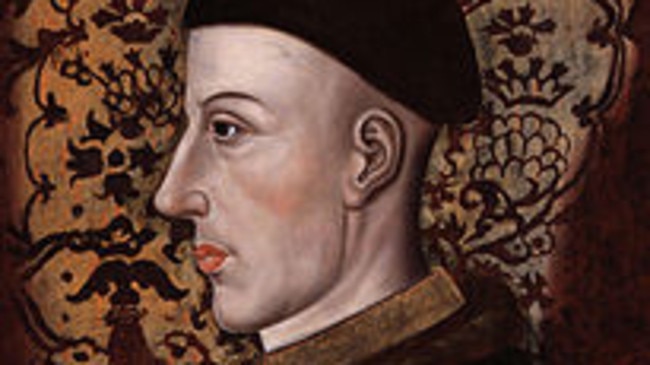
In many ways Agincourt was an accidental battle. King Henry V had ascended the throne in 1413 after the death of his father Henry IV and taking advantage of political instability in France asserted his right to various French territories. His claims reached back to time of William the Conqueror, which had sparked the Hundred Years War, but also included lands to which he had no legitimate claim.
Although Henry indicated he might relinquish his claims with compensation and marriage to Catherine, daughter of the half-insane Charles VI, the diplomacy failed. Henry arrived in Normandy in August 1415 with a force of 11,000 English and Welsh troops, planning a swift conquest of Harfleur, then Paris and points south.
He did not take Harfleur until September 22, which left little time before the approach of colder weather would end the campaign season. He decided to take his army, now halved by disease and casualties, back to Calais from where he could transport them to England. To speed up the march he left behind his baggage train and artillery, his men taking only eight days of rations. Meanwhile the French had gathered a massive army of 20,000-30,000 men under Marshal Boucicaut and Charles d’Albret, with which they blocked Henry’s progress north.
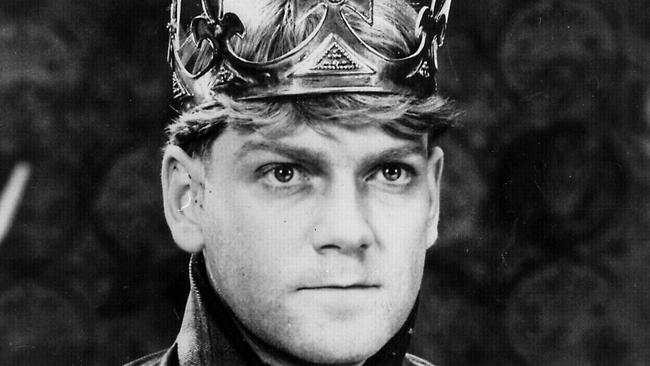
The French tried to stop Henry’s forces crossing the River Somme, but the British found a place to ford the river and evade the French. Henry’s starving, dysentery-affected troops, soon found their way blocked by the enemy and took up a defensive position near the town of Agincourt (modern day Azincourt). There they waited as the weather turned ugly, knowing that they would have to soon fight.
The French had inadvertently selected a battlefield negating the advantage of their larger army. The narrow strip of land between woodlands would force them to fight on a tight front unable to perform large manoeuvres or outflank the English.
Compounding this were the arguments among French nobles about who would lead the troops, in stark contrast to Henry’s command of his troops and the stirring speeches he used to rally them.
On October 25 Henry initiated battle by moving his longbowmen forward within range of the French lines, unleashing a hail of arrows. The French cavalry charged but were met with more arrows, their lines breaking on wooden stakes in front of the British lines. The cavalry fell back, throwing troops behind them into confusion.
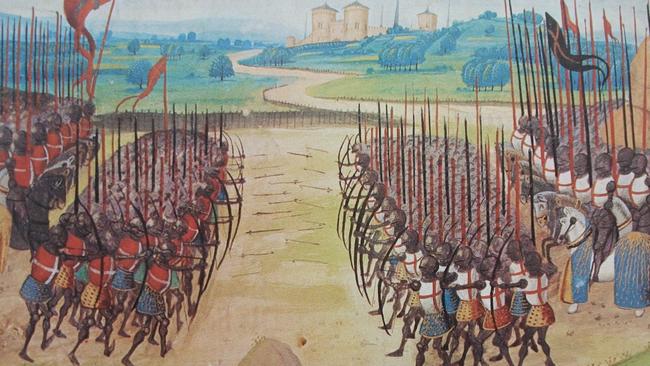
The French pushed forward but the British infantry held their lines as the longbowmen, now out of arrows, joined them in hand-to-hand combat. Henry then ordered his lighter armed archers to attack, they fell on the French lines with arrows, axes and swords. Among the hundreds killed was d’Albret. Thousands of French troops were taken prisoner.
It was over for the French and without leaders they fled the field. Henry ordered the execution of many noble prisoners, fearing that if released they might rally fleeing troops.
Henry returned to England in triumph but it would not be until 1420 that he would finally defeat the French and force them to sign a treaty acknowledging his claims in France and naming him heir to the French throne.
Henry’s death from camp fever in France in 1422 soon saw that treaty rescinded and English claims rejected, consigning the nations to several decades more of conflict.
THE MIGHTY LONGBOWMEN
While it was not exactly a secret weapon, Welsh and English bowmen at Agincourt played an important role in the battle as they had at Crecy in 1346. The British government had passed laws in the 14th century compelling lower class boys and men to train with the bow, since it took years of training to become strong enough to pull the bowstring and develop the skills to fire accurately. Legend has it that if the French captured a bowman they cut off two fingers, leading to the British two fingers up gesture of defiance.
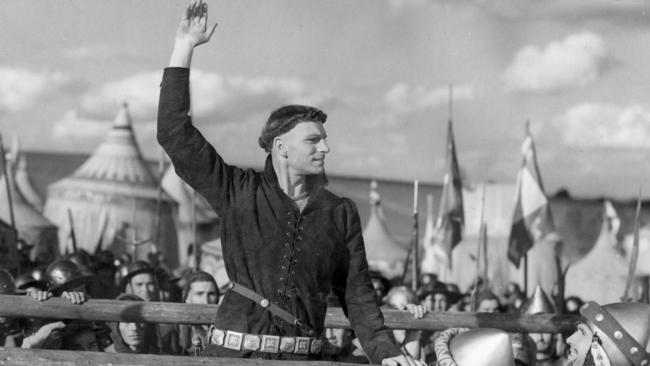
Originally published as Great English victory at Agincourt immortalised by William Shakespeare



